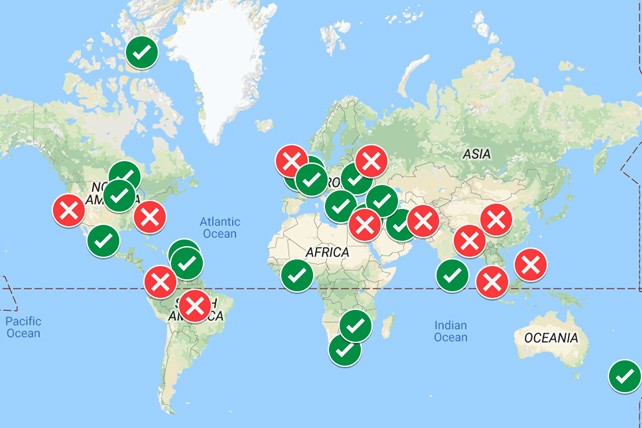The Scottish Drug Deaths Taskforce has published their final report, outlining their key recommendations and concrete actions to reverse the unprecedented level of drug-related deaths in the country.
With three people every day in Scotland dying from drug-related overdose, the “Changing Lives” report is the culmination of three years of research and interventions. The report notes that the majority of drug-related deaths are preventable, and decisive action must be done now to prevent any further suffering from occurring. Scotland has had the highest drug-related death rates since records began in 1996, with around 1,339 deaths in 2021, more than three-and-a-half times higher than England and Wales.
TalkingDrugs spoke with David Strang, the chairperson of the Taskforce, who said that the report is not meant to be a message of despair, but one of hope: “we’re saying that change is possible, but change is needed. Change in public attitudes and in services that are delivered.”
The Taskforce has embraced Scotland’s First Minister Nicola Sturgeon’s description of the drug-related deaths as a public health emergency, which requires a public health response to solve. Problematic drug use should be treated as a health issue rather than a criminal justice issue: Strang noted that you cannot punish people out of drug dependency, which is what the Misuse of Drugs Act has tried to do for over 50 years across the UK.
One of the largest barriers to bringing about this change is the stigma faced by people who use drugs: “That is a significant barrier, it isn’t just a case of ‘oh wouldn’t it be nice to be nice to people’ it actually is a barrier to people coming forward for treatment, or for people staying in treatment”. The Taskforce is thus guided by three principles to create a cultural shift to change public and health service attitudes:
- The drug deaths public health crisis is everyone’s responsibility;
- Broad culture change from stigma, discrimination and punishment towards care, compassion and human rights is needed;
- Families and people with lived or living experience should be at the heart of the development and delivery of services.
This includes the equal treatment of people with problematic substance use on par with other health conditions, particularly by ensuring people can access treatment at the moment they present themselves for services, and including drug addiction and dependency within the Scottish Disability Act.
Additionally, the report makes the case to avoid the compartmentalisation of people suffering from drug dependency into health services – and move towards a person-centred approach to care. Deprivation is a contributing factor to problematic substance use, and the lack of job opportunities, stable housing, mental health support, adequate education all impact the likelihood of someone suffering from dependency. Moving away from siloed, service-centred healthcare will ensure that people’s lives are impacted in such a way that the root causes of addiction and dependency are resolved, rather than temporarily and insufficiently alleviated.
The report outlines extensive and pragmatic opportunities for improvement, with 20 recommendations and 139 action points. Key among them are:
- The further rollout of naloxone, not only to emergency services but to peers and formerly incarcerated people (given upon release) to ensure it is available as much as possible by those that might need it. Creating a “Naloxone National Coordinator” role is also suggested to ensure its implementation.
- The creation of drug consumption rooms (DCRs), a controversial topic within UK drug policy at the moment as drug legislation is still reserved to Westminster, meaning that such rooms would be illegal to implement without amending the Misuse of Drugs Act. Strang underscored that DCRs are not a magic solution, but are a beneficial point of referral to connect people to drug treatment and other health services where desired.
- The greater involvement of peer supporters from across the recovery community, creating opportunities for people to support each other, through their journey of recovery, whatever that means to them.
Speaking about concrete steps for the future, Strang spoke on how drug addiction is excluded from the Equalities Act, and its inclusion would place addiction on the same level as any other health condition that should qualify for disability. For further drug policy changes, the possibility of devolving drug policy issues to Scotland would enable the nation to pursue its own drug policy projects, surpassing the political impasse and resistance to evidence-based solutions to drug-related deaths like drug consumption rooms.
Commenting on the Home Office’s recent white paper, where Priti Patel referred to drugs as “a scourge across society [that] devastate lives and tear communities apart”, Strang noted that there is considerable consensus in Scottish parliament on the need to address drug harms as a public health issue:
“Members of Scottish Parliament are much closer to the problem of addiction and the harm it causes, not as a scourge and breaking families [or] as bad people that take drugs, but realising that nobody chooses [addiction], they would much rather want to make different decisions in their lives”.
The report is hoped to be the first step in ensuring the Scottish government will be moved to take further decisive actions to improve the lives of people with problematic relationships with drugs, and bring in innovative solutions that will help stem this public health tragedy from further spiralling out of control.


